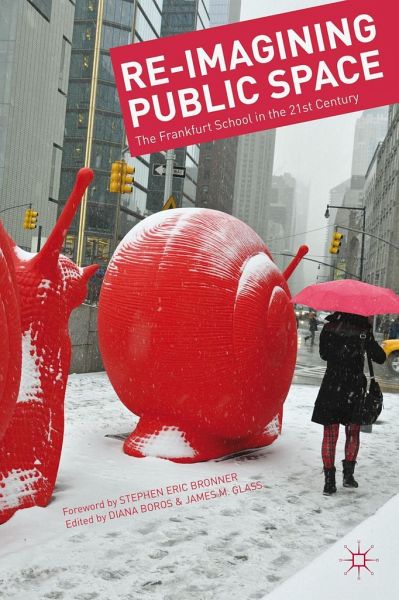
Re-Imagining Public Space
The Frankfurt School in the 21st Century
Herausgegeben: Boros, D.; Glass, J.

PAYBACK Punkte
19 °P sammeln!
Public space, both literally and figuratively, is foundationally important to political life. From Socratic lectures in the public forum, to Occupy Wall Street and the Arab Spring, public spaces have long played host to political discussion and protest. The book provides a direct assessment of the role that public space plays in political life.














